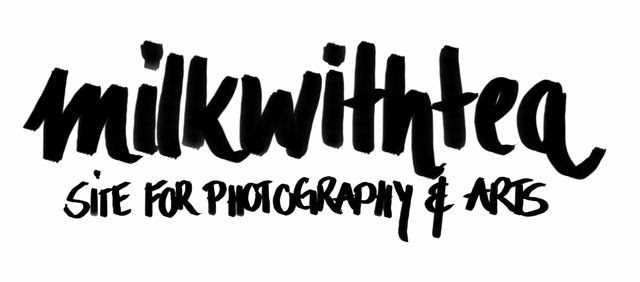Bloomington, Indiana
Women! What do you find most fascinating about them?
Women
are enchanting and mysterious. I'm fascinated by the adventure of getting to
know them. There's something of a discovery, a revelation, with each encounter.
I know I'll never understand them fully. Ultimately, this is an exploration of
what natural feminine beauty means to me. So I’m not looking for a definite
answer, it’s a complete mystery and this is my exploration. I’m drawn to the details
of their skin and lips. I enjoy the way muscles and bones show through their
skin during certain movements, expressions. The eyes are obviously essential -
but not the eyes themselves, their looks. I also love their hair, particularly
when it's natural and messy. I appreciate the differences in between,
constantly stretching my sense of what it means to be a woman.
Your portraits are full of emotion. How do you bring
out the most out of your models?
I ask
my subjects to be themselves, to be natural, to not pose for me, to not wait
for the camera's shutter, to forget I'm there, to get inside themselves, to
imagine they are in some other situation, with their partner, with their
friends, or on a stage, performing for a crowd.
We generally put music on - I ask them to play something they have loved
recently. Ultimately, I avoid directing
them. I’m not looking for anything
specifically - I see this as me learning from them.
For you, how important is it to empathize with models
during a shoot?
Oh,
it's absolutely crucial. I would get
nothing of interest unless I empathized with them.
You appear to be a firm believer in black and white
photography. Is there any particular reason for this?
I'm
not entirely wedded to black and white.
I am certainly very attracted to colours, too. And often I do play around with them during
editing. Up to now, most of my work has
been in black and white for a very simple reason: It allows me to concentrate
on the things that interest me the most: the expressions of the models, and the
ways the light shapes them. I like
working within constrains that black and white photography presents me. I like the structure that it provides. What I
want is to loose the irrelevant details.
Focus on just a few things, the lips, the neck, a shape, an emotion.
Something feminine, raw, and mysterious.
I’m happy to play with colour when I feel it adds to that something.
Back to portraiture: How hard is it to tell genuine
emotion from fake/posed expressions of feeling?
In
real life it's trivial. That's one of
those things we've evolved to be really good - it's essential to our
survival. It's a lot harder on a
photograph. We've been subject to many different selection pressures, but the
ability to tell emotions from a photograph was not one of them. This, by the way, is something Charles Darwin
was very interested in. I’d highly
recommend his book titled "The Expression of the Emotions in Man and
Animals." To capture expression, I
believe we have to convey actions. That
is one of my main interests in portraiture and to me the biggest
challenge.
Do you ever mind being photographed yourself?
I'm
not entirely against it, but I guess I don't make it easy either. I'm quite self-conscious. I admit to my models how bad I am at being on
the other side of the lens. It's partly
why I sympathize with them. I understand
how hard it is to be looked at. I don't
like the attention. This is why I try to
make them as comfortable as possible.
The whole session is an exercise in getting them to be comfortable in
front of me. Maybe one day I'll get
comfortable in front of the camera. At
the moment, there's nothing I want more than to be the one composing the shot.
How do you go about choosing pictures for a portfolio?
This
is one of the hardest parts of photography for me. I agonize for days, and
sometimes weeks, over it. Last time I
had to do it, I filled my room with small prints, then arranged, and
re-arranged them for hours. I play around establishing all sorts of systems for
categorizing them, and prioritizing them. The truth is I'm rarely satisfied. I
usually feel there's a better selection out there, that I haven't arrived to -
if I could only figure it out! Even once I've selected the few that I like the most,
I often want to go back and re-process the photographs. Like my academic work, I've learnt to simply
put a stop to it after a certain time - regardless of whether I think it's
there or not.
How often do you consult others' opinion on your work?
Who do you ask?
I'm
relatively private. I do often consult my partner. So far she's the only one I've asked directly
for feedback about my work. I'll run by
her ideas at any stage of the process: from the conceptual inspiration, to
finding the model, to the selection process, and even the editing.
Could you describe your body of work in a few
sentences?
Unusually
natural: A series of black and white, minimal, raw portraits exploring feminine
beauty through expressions.
It seems that this is what happens when emotions are captured in photographs. Take a look at his work!



















No comments:
Post a Comment